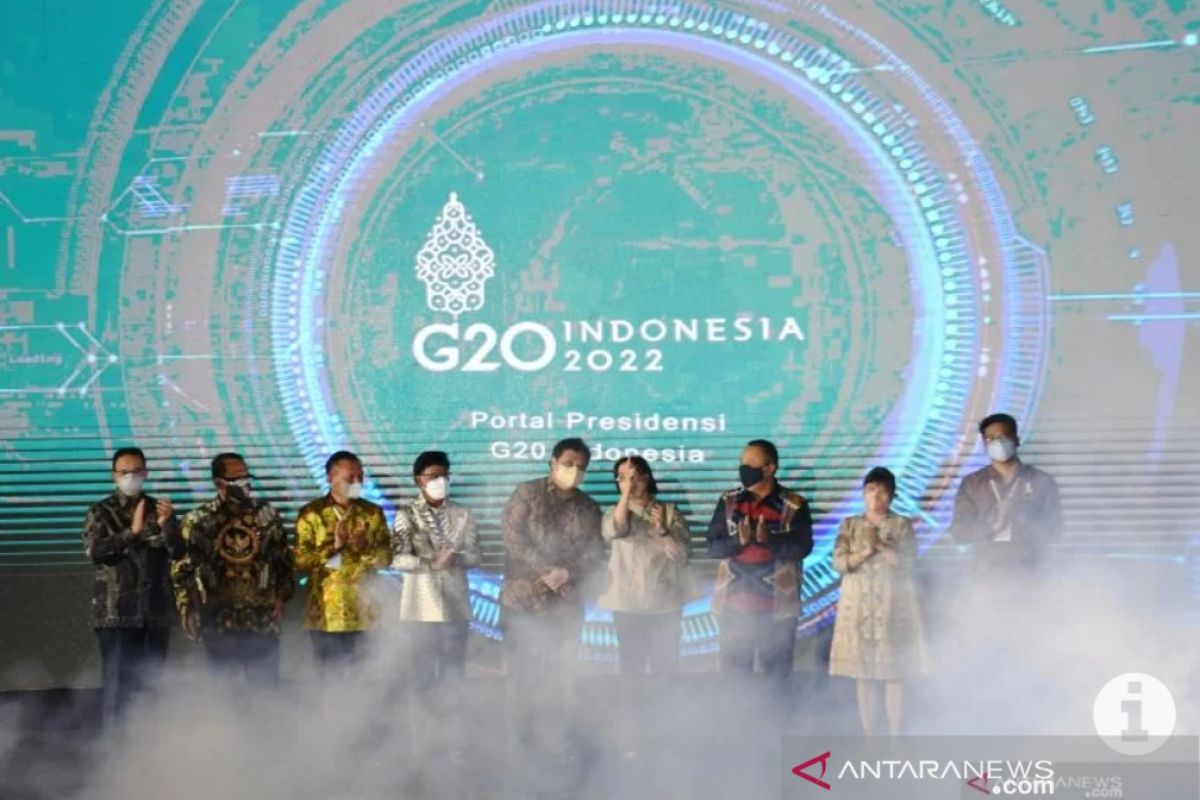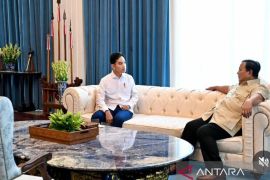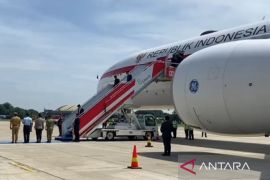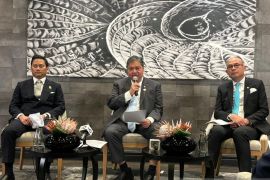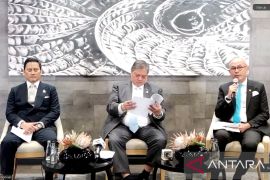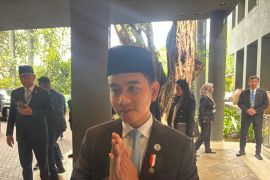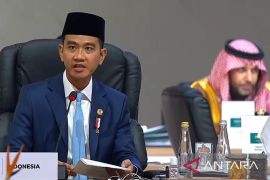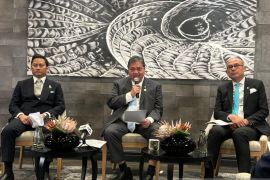Currently, the world is facing a "polycrisis" -- various crises occurring simultaneously -- in the form of the COVID-19 pandemic, food crisis, energy crisis caused by a conflict between Russia and Ukraine, and also a financial crisis due to the normalization of the monetary policy in developed countries.
In the wake of these various problems, President Joko Widodo (Jokowi) is keen that Indonesia's Presidency in G20 be able to bring a breath of fresh air to the world through transformation in various fields that could usher in prosperity and peace for all countries.
According to Jokowi, in these difficult times, the G20 forum should become relevant for the entire world and not just for the G20 members.
The G20 comprises South Africa, the United States, Saudi Arabia, Argentina, Australia, Brazil, India, Indonesia, Britain, Italy, Japan, Germany, Canada, Mexico, South Korea, Russia, France, China, Turkey, and the European Union.
While holding the Presidency, Indonesia has the opportunity to ensure that the interests of Indonesian people are heard by the entire world. As the host, Indonesia can also propose issues and lead dialogues that are fit for purpose.
Indonesia brought three main issues to be discussed at the G20 forum: global health architecture, digital economic transformation, and energy transition.
Moreover, the head of state wants the G20 to contribute more to the world's economic recovery. He harbors ambitions for the G20 Presidency to build a healthier, more equal, and more sustainable world governance in accordance with freedom, everlasting peace, and social justice.
Hence, the theme of the Indonesian G20 Presidency is "recover stronger, recover together."
Inclusivity at G20
President Jokowi once emphasized at the United Nations (UN) forum that inclusiveness was the main priority of Indonesia's presidency in the G20.
This has become Indonesia's commitment to leave no one behind, especially in overcoming the COVID-19 pandemic and achieving global economic recovery.
Indonesia will push the G20 members to work for the benefit of all nations: the developed and developing countries, large and small countries, island countries and small islands in the Pacific, as well as vulnerable groups that must be prioritized.
Hence, Indonesia will invite inter-governmental organizations, such as the Caribbean Community and the Pacific Islands Forum, to the G20. Indonesia also expressed its commitment to invite the African Union to the G20. This would be the first participation of small island countries and the African Union in the G20.
Efforts to involve archipelagic countries and friendly countries in the African continent are not without cause. The military conflict between Russia and Ukraine has increased the prices of food items, including grains, as well as of fertilizers and energy.
The economic chain effect has worsened the crisis that affected several countries in the world, including Ethiopia, Kenya, and Somalia. Many countries, from Ghana to Zambia, have sought help from the IMF to repair their debt, according to a Bloomberg report.
Hence, it is important to hear the voices of all countries that reel from the impact of global uncertainty at the G20 Forum.
Moreover, Indonesia has kept voicing the availability of the COVID-19 vaccine for all countries without any inequality. These various steps were taken to utilize Indonesia’s position as G20 President to help in solving global problems.
Strive for peace
Indonesia's steps to strengthen the relevance of the G20 to world issues can also be seen from President Jokowi's stance and approach in international and bilateral forums of always voicing the interests of developing and poor countries.
The conflict between Russia and Ukraine has proven to worsen the difficult situation in the world that has been hit by the COVID-19 pandemic. Moscow's military attack on Kyiv impacted the world's political condition that had an impact on relations between countries in the G20 forum.
The G20 summit was overshadowed by the threat of a boycott by western countries that condemned the Russian military invasion. Many of the G20 member countries disagreed with Russia’s decision to launch an attack on Ukraine.
Meanwhile, Indonesia is responsible to ensure the participation of all member countries, including Russia, to attend the summit. This situation is quite challenging for Indonesia.
President Jokowi has not remained silent in this situation. He has intensely contacted and met directly with state leaders to make the G20 a success. Indonesian Foreign Affairs Minister Retno Marsudi also lobbied the Foreign Ministers of G20 countries and various international institutions.
During the ASEAN-US Special Summit in Washington, the US, President Jokowi took the stage to promote Indonesia's G20 Presidency. The warm response from US President Joe Biden at that time drowned out rumors that Western countries would boycott the G20 because Indonesia kept inviting Russia.
President Jokowi also visited Germany to attend the G7 meeting, an annual forum held by advanced industrial countries comprising Canada, France, Germany, Italy, Japan, the United Kingdom, the United States, and the European Union.
At the forum, President Jokowi invited G7 leaders to attend the G20 Summit in Bali. He also conveyed the interests of developing countries, in the hopes that the G7 and G20 countries could help to overcome the food crisis that threatened the people in several countries to fall into extreme hunger and poverty.
After leaving Germany, President Jokowi, accompanied by First Lady Iriana, visited Kyiv, Ukraine, by train to meet Ukrainian President Volodymyr Zelenskyy and then headed to Moscow to meet Russian President Vladimir Putin.
"I have conveyed President Zelenskyy's message to President Putin. I also conveyed my readiness to broker communication between the two leaders," President Jokowi said after meeting President Putin.
The diplomatic efforts made by President Jokowi by directly meeting the leaders of the G20 members offered optimism to the world regarding open space for dialogue with collaboration in solving problems.
President Jokowi's courage in volunteering to bridge the communication between Ukraine and Russia also confirms the direction of the Indonesian Presidency that is keen to play a role in becoming a solution to global problems.
After President Jokowi's diplomacy, the optimism of the Indonesian Presidency in the G20 continued to strengthen as was apparent in the G20 Foreign Ministers Meeting (FMM) on July 7-8 in Bali.
Foreign Affairs Minister Marsudi, who was accompanying President Jokowi in the United Arab Emirates at that time, said that all foreign ministers of G20 member countries, including Russia, were confirmed to attend the FMM. This was definitely not an easy matter to gather foreign ministers from conflicting countries in a forum.
Furthermore, at the G20 Finance Ministers and Central Bank Governors' Meeting (FMCBG) on July 15, 2022, Indonesia succeeded in presenting the largest number of foreign delegates physically attending the event during the period of the Indonesian G20 Presidency. A total of 407 foreign delegates were physically present in Bali and 120 delegates were present virtually.
The 3rd FMCBG meeting focused on discussing seven priority agendas proposed by Indonesia: the risk and the situation of the global economy, global health, international financial architecture, financial sector issues, sustainable finance, infrastructure, and international taxation.
In discussing the situation and risks of the global economy, the G20 finance ministers discussed, among other things, the impact of the Russian aggression in Ukraine that could trigger an energy crisis, food crisis, and financial crisis.
Indonesian Finance Minister Sri Mulyani said that the G20 should become the world's largest economic cooperation forum, with experience in solving various global problems.
"All G20 members also agreed to continue and maintain existing cooperation in the spirit of multilateralism," she added.
Indonesia's efforts have started to pay off. The G20 was not a forum that produced binding decisions but one that could produce important directions for the policies of member countries, multilateral organizations, private economic actors, as well as non-governmental community institutions.
With the efforts that have been made and the spirit to recover stronger and recover together, Indonesia has the opportunity to make the G20 forum a milestone in increasing its role in the global arena, as well as a good start ahead of the role of the ASEAN Presidency in 2023.
Related news: Youth involvement in energy transition essential: official
Related news: Minister projects 20-percent rise in global food prices by 2022-end
Editor: Rahmad Nasution
Copyright © ANTARA 2022
